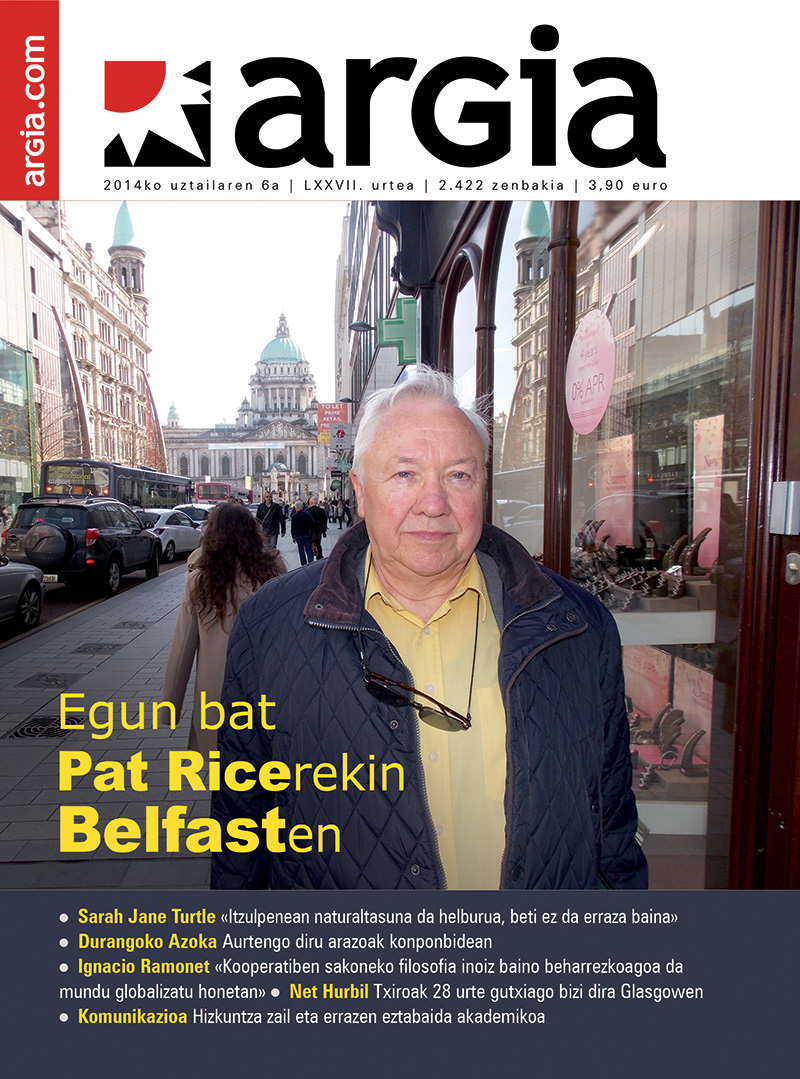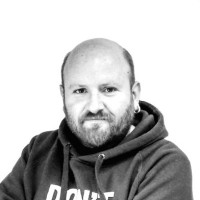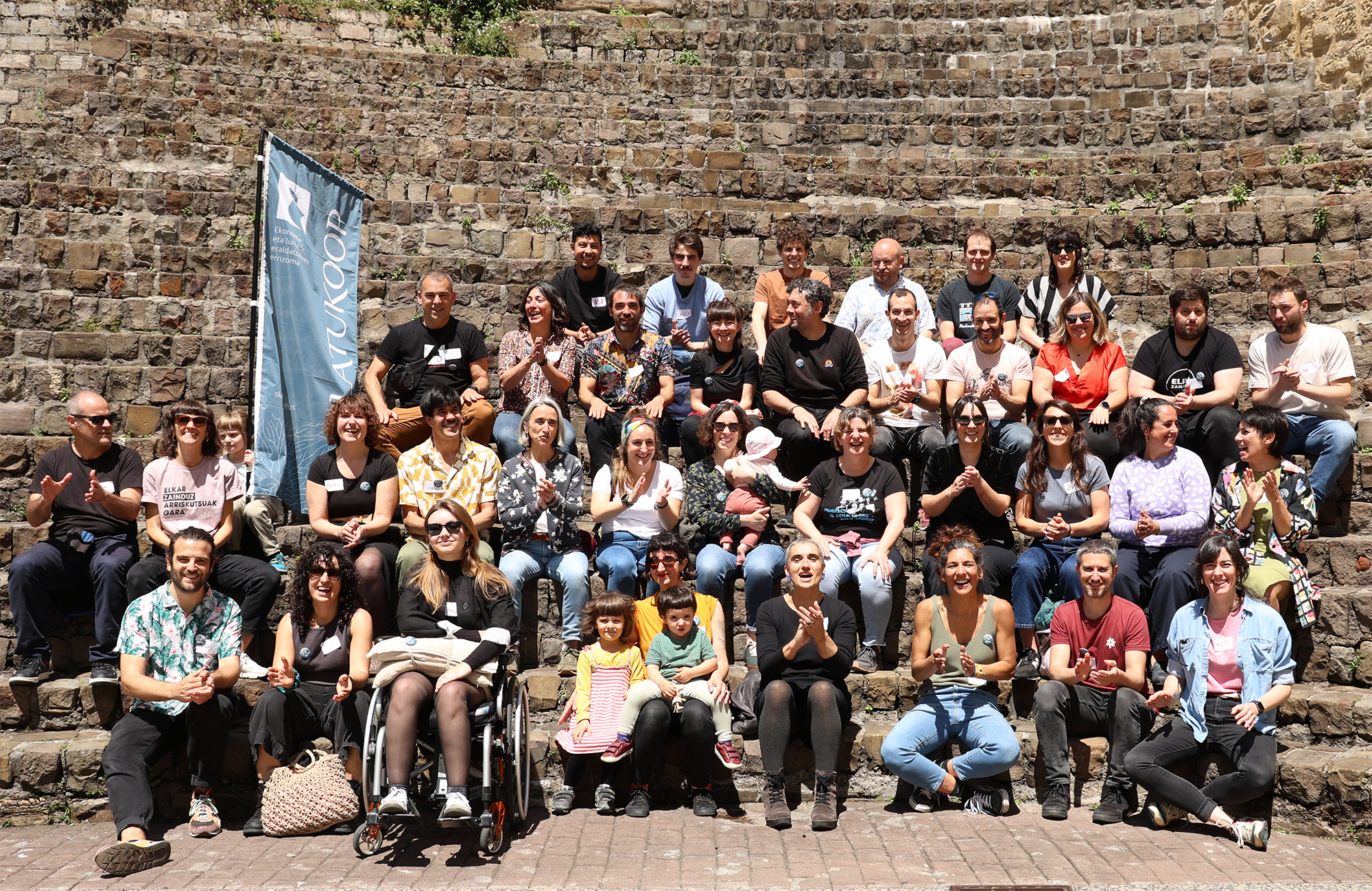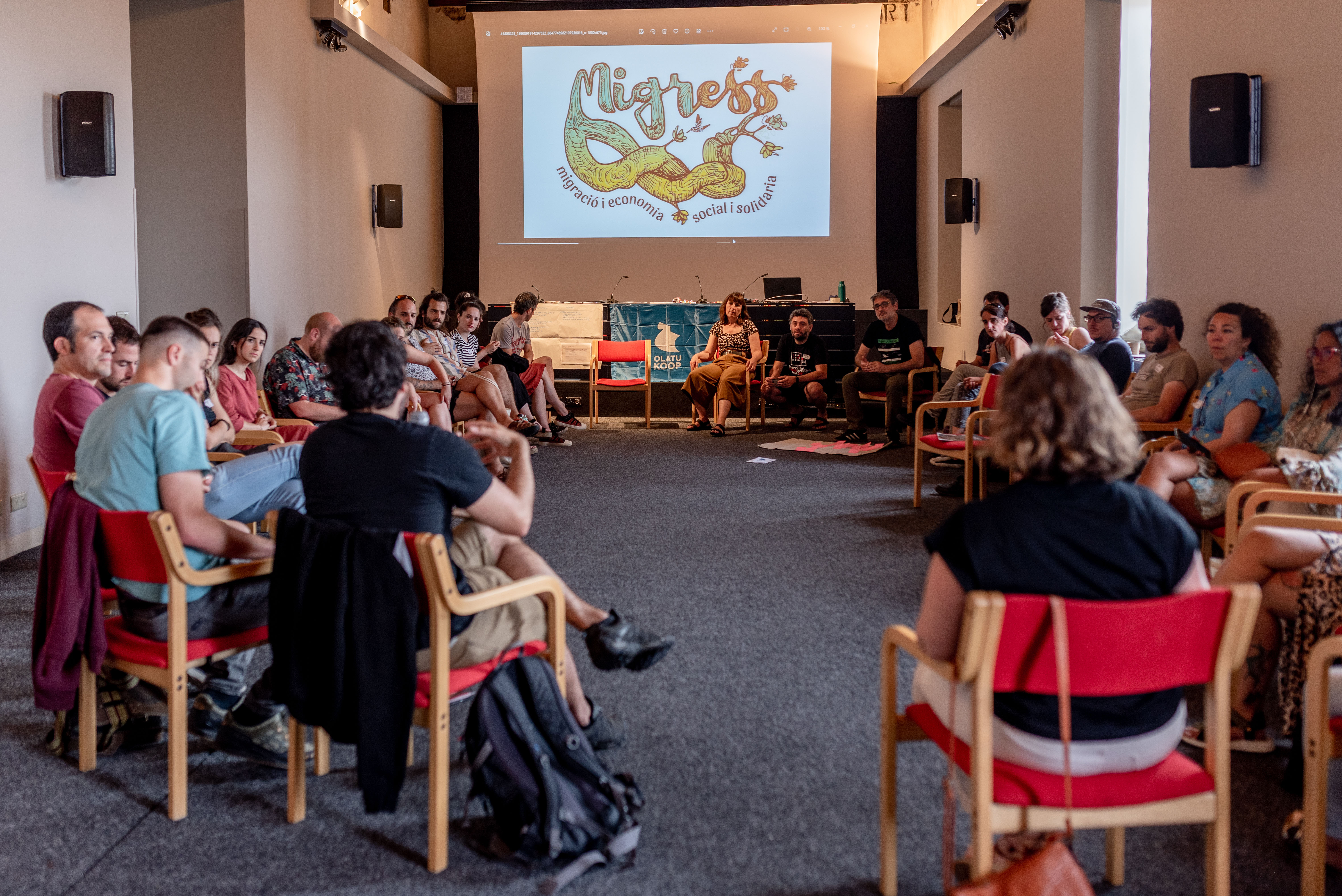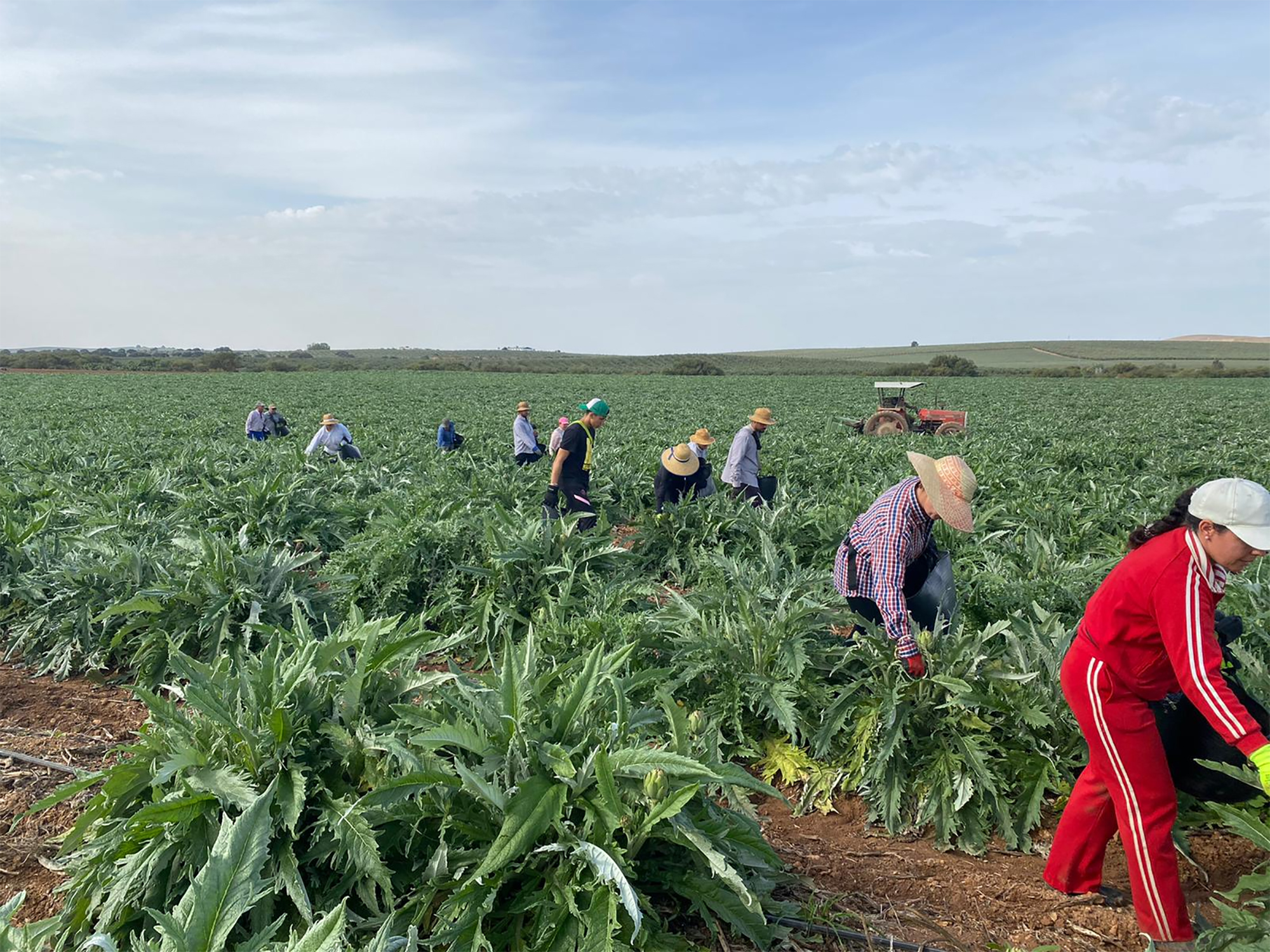Cooperativism proposes economic democracy
- Invited by the Lanki Institute of Mondragon Unibertsitatea, 2nd Day of Cooperativism. The meetings were attended by alterglobalist thinker Ignacio Ramonet (Pontevedra, Galicia, 1943) and director of Le Monde Diplomatique. Drawing geopolitics and the map of geoeconomics, he has underlined the important role that cooperatives play in financial globalisation. We have taken everything we have said out of the latter.
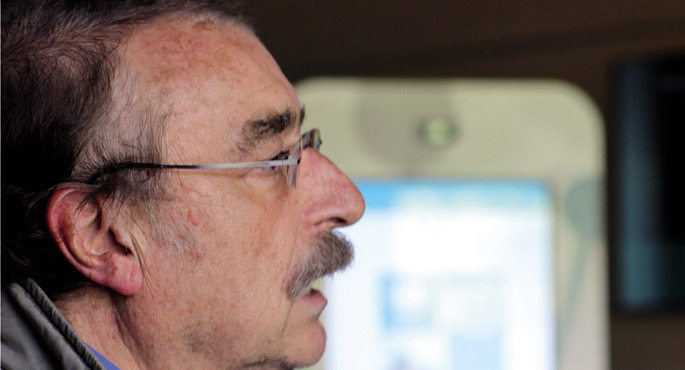
To what extent can it be a cooperative solution? In fact, cooperativism – participation – is the solution because it transmits other values rather than the dominant values in the society of financial globalisation. It proposes a different philosophy in relation to an economy geared exclusively to satisfying the interests of investors. Cooperativism proposes a genuine economic democracy, with the participation of the working partners, as workers are producers and at the same time owners of the company.
There's a big difference. The cooperative is a capitalist actress, a market actress, but it's not a capitalist company. How does Marx define capitalism? When man exploits man. By definition, there is no such exploitation in a cooperative. A cooperative is an association of self-employed people who have voluntarily gathered around an economic project, of workers who have decided to work together.
Cooperativism has values such as mutual support, responsibility, democracy, equality… Quite the opposite of the selfish and exploitative functioning of financial capital in the age of globalisation. Of course, the partners of a cooperative are supposed to work in an honest spirit, with transparency, with accountability… The traditional capitalist enterprise does not always allow it.
The cooperative has principles that do not exist in companies that only think about profitability, that do not exist in companies that seek to meet the demands of the shareholders. You can integrate freely into a cooperative, it has a democratic and collective management, the worker can participate in the economy and in the benefits, the cooperative has more autonomy, more independence, cooperation between cooperatives fosters mutual help. In short, the cooperative pays attention to its community.
This does not mean that we are idealistic or that we think that all those who work in cooperatives are angels. We know that many cooperatives have gone the same way as traditional capitalist enterprises, that partners have a rather selfish desire to participate more in profits. But the deep philosophy of cooperativism is a counter-model, more necessary than ever in this globalized world.
Living well in Ecuador and Bolivia
I compare this cooperative, participatory and solidary ideology with the project that is emerging in Latin America. Both Ecuadorians and Bolivians call it sumac causai. What does that word mean? Live well. It's the philosophy of living well. In the Constitutions of Ecuador and Bolivia, this idea has been introduced: they have added the principles of living well. The State has an obligation to meet the basic needs of the population. This project is facing the project of the neoliberal state.
Many Latin American countries with progressive governments are the result of the destruction of the neoliberal state, which meant the withdrawal of their heritage from society. When the poor have nothing, they still have a heritage: the public sector. A poor one who has nothing, has a school for his children; a poor one who has nothing, has a free hospital for him and his family; a poor one who has nothing, has cheap public transport subsidised by the state and can have housing. When the school is privatized, when the clinic and health, housing or transportation are privatized, the poor are being robbed of that little they had, the patrimony that shared the state with society. We must not think that the neoliberal state can put anything in when it is privatised, as is being done in so many sectors. In fact, the community of that nation is being robbed of a right, a good, a patrimony.
How have the states of Ecuador and Bolivia responded? Well the principle of life enshrined and perpetuated in the Constitution. It is about guaranteeing people the satisfaction of basic needs, the quality of life, dignified death, love and love – all this is in the Constitution of Ecuador – the flourishing of harmony and health with nature, the sustainability of minority cultures and languages, the free time for contemplation, emancipation… In a cooperative there is freedom to do so, because the cooperative participates consciously in such a unique enterprise. The cooperative is very different from the exploitative and selfish companies that can exist in capitalism, and from those that seek pure profitability, which allows to create a new philosophy.
Of course, in many cooperatives the problem is how to highlight participation, how to organize participatory democracy in the cooperative’s activity. That means that participatory democracy must be maintained, encouraged and continually proposed.
Cooperativism “improvised” in Argentina
I have recently visited Argentina, visiting several cooperatives from companies occupied by workers. At the time of the 2001 crisis in Argentina, owners and entrepreneurs from very diverse sectors – whether shoe factories or hotels – owed the workers so many salaries and interests that they decided to close the company overnight and go abroad. But many workers occupied these factories and organized themselves into cooperatives to continue producing and being profitable.
It has been a great experience gained over these ten years with this improvised cooperativism. They themselves say that it is always important to remember partners who are part of a cooperative, who are not employees of a company, and that participation must be encouraged. Solidarity, dialogue and the relationship between the partner and management must be articulated on a permanent basis. It is also very important for them to imagine and make innovations in the organizational structure of the cooperative, not to let the structures of the cooperative linger, to seek new ways that come out of that repetitive rhythm that the train carries. From the thousands of debates they had, they conclude that the partner has an obligation to assume an economic and social responsibility within the cooperative.
Protekzionismoa: Frantziako Gobernuak esan zuen ez zuela utziko Fagor Brandt hondoratzen. Fagorren kasuan, lehendakariak esan zuen ezin zuela ezer egin, bestela zigortu egingo zutela.
Finantza globalizazioaren egiturak erabakigarriak dira eta politikarien maniobratzeko tartea oso mugatua.. Fagorren kasuan euskal agintariek esan zuten ezin zutela ezer egin, Europako araudiengatik. Frantziako Montebourg ministroak ere ezin izan du saihestu hamarnaka lantegi ixtea. Estatuak ezin du industria bat lagundu, lehian dagoen beste industria batek salatu dezakeelako. Hori da eraiki dugun Europa, genetikoki neoliberala.
Protekzionismo solidarioaren gaia mahairatu behar da. Protekzionismoa gaur egun hitz lizuna da, baina zeinek praktikatzen du merkatu librea? Ha-Joon Chang korearrak Kicking Away the Ladder (Eskailera kendu) liburuan dio hasieran AEBak protekzionista sutsuak zirela, baina merkatua menperatzea lortu zutenean “eskailera kendu” eta inork protekzionismoa egitea eragotzi dutela.
Mapa geoekonomikoan, zer ekarpen egin dezake ekonomia sozialak?
Hedatzen ari den mugimendua da. Krisiak ekarritako hondamendi ekonomikoaren ondorioz kooperatibak biderkatu dira, jende askok ondorioztatu du auto-antolatu behar duela bestelako ekonomia batekin. Frantzian S.Coop-ak oso sektore garrantzitsua dira; Latinamerikan proiektu kooperatiboak sustatzen ari dira… Etika ekonomikoaren eskaerari erantzuten dio ekonomia sozial eta solidarioak.
Hazkunde famatuaren gaian, zein dira marra gorriak?
Azken aldiz 2002an etorri nintzen eta orduan “erraldoitasunaren” gaia zen kezka. Zehazki, Maroko eta Poloniako langileen estatutuek ez zituztela bertakoaren baldintza berak, eta horrek etika arazoa sortzen zuen. Esplotaziora igarotzen ari zineten. Noraino hazi liteke kontrola galdu gabe? Zer neurritan biderkatu beharko lirateke giza tamainako kooperatibak, autonomoak, eta ez multinazional baten antza duen zuhaitza sortu? Galdera horri erantzun beharko zaio. Mondragon erreferentzia da mundu osoarentzat, denak begira dituzue, denek nahi dute Mondragonetik ikasi.
Gure lurraldeetan eta bizitzetan sortzen diren behar, desio eta ekimenen inguruan gero eta gehiago entzuten dugu harreman eta proiektu publiko-komunitarioak landu beharraz, eta pozgarria da benetan, merkaturik gabeko gizarte antolaketarako ezinbesteko eredua baita. Baina... [+]
I write these lines the day after the elections to the European Parliament, the dark times, the triumph of the Reactionary International in the elections to the European Parliament. It was already in advance and it is the confirmation of the conservative phase we live in, but it... [+]
One of the major projects developed by Olatukoop with other actors is KoopFabrika, a programme created in 2017 with the aim of boosting social entrepreneurship and which is currently underway.
Initially, the first idea was that the cooperatives and agents that gathered around... [+]
Bizitegi molde kooperatiboak zabalduz doaz Ipar Euskal Herrian. Euskal Hirigune Elkargoko azken biltzar nagusian Nicole Etxamendi, Itsasuko hautetsiak "Bizi lagun" kooperatibak kontutan hartu behar zirela eta alternatiba ona direla azpimarratu zuen.
When I am asked about cooperativism and the transformative economy through the cooperative Talaios and Olatukoop, I say that it has been an opportunity to begin the path to emancipation through work and collective action. And on that road it has been very important to work on... [+]
At the beginning of July we learned that the pastries and sweets factory De Paula will be closed in our town, which is essential for many workers’ houses. They say that pastry shops and, of course, retired workers have every right to rest, but we are going to lose an important... [+]
We insist that we are no longer a partnership or a collective. We went, yeah. We didn't have a collective way of being activist transmaribibollos (no, we're not very supportive of individual activism). We leverage the partnership to bill.
But in 2020, we went from being... [+]









